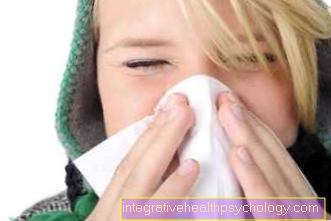Cold medicines
introduction
A cold is an infection caused by bacteria or viruses, which can lead to colds, hoarseness, a scratchy throat, sore throats, coughs and possibly fever.
Especially in the winter months, many patients get a cold and therefore need medication for the cold. Here, the patient can fall back on various medications against colds. Simple home remedies are particularly popular, but there are also various over-the-counter medications for colds from the pharmacy through to prescription medication that can only be obtained from a pharmacy with the help of a prescription.
Read more on the subject at: Common cold symptoms.

Home remedies for cold symptoms
In winter, many patients are plagued by a cold. Mainly home remedies as Medication against colds are very popular because they are cheap, usually already available in the house and often help just as effectively as a chemically produced drug. Depending on the symptoms, the patient can use various home remedies as medication for colds.
If a patient suffers from a cold, the nose constantly "runs" or that the nose feels blocked and the patient has the feeling that they can no longer breathe through it, the patient can try over hot water (40-65 °) too inhale. Here, the hot water is poured into a bowl, possibly another substance such as Salt, Pine needles or essential oils added. The patient then bends over the bowl and breathes in the hot steam that emanates from the surface of the water. It is important not to touch the water, otherwise burns can occur. In order to increase the effect, the patient should also have one Towel over head and bowl place so that the steam gets directly into the patient's nose and cannot be additionally distributed in the room. This inhalation is a good home remedy and medication for the common cold and, above all, for the runny nose during a cold.
Even with a strong cough and above all with dry cough this home remedy is very suitable as a medicine against colds and their symptoms. It should be noted that infants and young children under no circumstances additives containing menthol inhale (inhale), otherwise it becomes one Stop breathing can come and the child can die from it. That is why inhaling the hot steam is recommended as a home remedy and medicine against colds, especially for adults and adolescents.
Other home remedies and medications for colds are various among others Teas. Especially Sage tea, Camomile tea or Fennel tea are very suitable as home remedies and medicines against colds, so that larger quantities (about 1l of tea per day is optimal) can be taken.
sage can also be used as Lolly can be taken, which makes it particularly effective for coughing. But also with Sore throat and hoarseness, tea and sage suckers help as home remedies and medicines for the common cold and its symptoms.
Some patients, on the other hand, feel more comfortable with hoarseness if they put a cooling poultice around their neck or suck a piece of ice. It should be noted, however, that this home remedy or medication for the symptoms of the common cold will only improve the hoarseness, but may make other symptoms such as the cough worse.
At fever The main home remedy is for strict bed rest at least 2-3 days until the symptoms have completely subsided. Another simple home remedy is the fever Calf wrap, as this cools the patient a little and thus eases the symptoms. However, since fever is a very important and necessary defense process of the body, the fever should not be constantly tried to cool down. After a few days, the body regulates the body temperature on its own and therefore home remedies, less medication for colds with fever, are recommended.
Over-the-counter drugs
In addition to many home remedies, there are also over-the-counter cold medicines that can be purchased at pharmacies.
For example, if a patient has a cold nose that feels very swollen and impermeable, various nasal sprays can help. On the one hand there is a nasal spray, which consists only of sea salt and a water solution. This nasal spray is an over-the-counter medication for a cold and can be purchased at a pharmacy or drug store. There are also nasal sprays or ointments containing dexpanthenol (also known under the name Bepanthen®), which can be used as over-the-counter medication. On the other hand, there are also nasal drops with a salt water mixture, which are ideal medicine, especially for smaller children.
Herbal medications (Sinupret® forte or Sinupret® drops) can also provide relief for nasal congestion.
Read more about this at: locally acting nasal sprays.
If it comes to a sore throat, the patient can get various preparations in the pharmacy. Good over-the-counter medicines for colds and the resulting sore throats include various lozenges. Some of these tablets also contain a pain reliever, such as the local pain medication (anesthetic) Lidocaine. These over-the-counter medications are particularly popular when the patient has severe swallowing difficulties.
Read more on the subject at: What is lidocaine?
However, if a patient also suffers from a strong dry cough, additional medicines should be taken. Among other things, there are various medicinal medicinal teas that contain sage, thyme or various herbs. These can be purchased from a pharmacy without a prescription.
There are also various lotions that are then applied to the chest and back. These lotions often contain sage or peppermint as essential oils and thus have a stimulating effect on the mucus solution. They also reduce the urge to cough and ensure that the nose becomes clearer.
Various cough syrups with different ingredients such as ribwort or ivy can also be purchased in pharmacies without a prescription. These cough syrups make it easier for the patient to breathe again and that the mucus loosens and is coughed up. It is important here that the patient drinks enough, as the cough syrup can ensure that the mucus binds with the water and is thus also liquefied.
If a patient also has a fever, various antipyretic painkillers such as paracetamol or ibuprofen are available. It is important that the patient pays attention to the exact dosage, otherwise, in the worst case, serious damage to the liver can occur. It is also important that the patient reminds himself that the fever is a natural defense process of the body, which should not necessarily be stopped. Exact consultation with the family doctor is very important here, as he or she can decide in the individual case whether antipyretic drugs are useful or whether the patient should let the fever end naturally.
Medicines prescribed by a doctor
In addition to many home remedies and over-the-counter medications for the common cold, there are also few medications that a patient can only purchase if they visit their family doctor and the doctor issues a prescription for the medication. In general, however, prescription medication is very rarely necessary for a cold. Especially Antibiotics should not be given for a simple cold. However, if a patient also suffers from one Tonsillitis (Tonsillar angina) it may be necessary that the patient needs an antibiotic. Furthermore there is Nasal sprays with the active ingredient Xylometazoline or Oxymetazoline. Although these are over-the-counter drugs that swell the nasal mucous membrane, the drugs should be prescribed by a doctor as there is potential for addiction. This means that the patient should only use these nasal sprays exactly as prescribed and never longer than 7 days. Otherwise the nasal mucosa will get used to the nasal spray and will no longer be free without the use of the nasal spray. That is why it is very useful to have an exact consultation with the doctor. There are no other drugs that should or can only be prescribed by a doctor. Most medication for colds can therefore be obtained by the patient himself in the pharmacy or in drugstores, but if warning symptoms such as high fever or persistent fatigue, a doctor should be consulted.
Medicines during pregnancy and breastfeeding
In general, the pregnancy and breastfeeding as little medication as possible should be taken. If a patient catches a cold during pregnancy or breastfeeding, action can still be taken against the cold without harming the unborn child. In general, every medication and every home remedy should be discussed with the family doctor, gynecologist or pharmacist so that any risk to the unborn child can be minimized.
However, there are several common cold medicines that can be taken during pregnancy and while breastfeeding, but these are not so much medication as they are Home remedies acts. Above all, it is important that all menthol-containing (amongst other things peppermint) Teas and essential oils avoided should be.These medications can eventually cause the baby to suffer from the menthol-containing substances Shortness of breath gets. The medication against colds during pregnancy and breastfeeding should therefore be based on natural ingredients and should be discussed with the doctor. For example are Seawater-like solutionswhich are contained in nasal sprays or nasal drops or which can also be inhaled, harmless for the well-being of the mother and the child. Most teas like Camomile tea, ginger tea or Sage tea can easily be used for pregnant women. The same applies to sage sweets. However, it is important that fever only after precise consultation with a specialist and only considering the risk-benefit medication such as Paracetamol or Ibuprofen administered.
Also read more about Medication during breastfeeding.
Medicines for colds and runny nose
Especially in the winter months, many patients become increasingly ill and need medication against cold and sniff. There are a whole range of options here, many of which are based on Home remedies or over-the-counter drugs based. They are best suited in this case Steam inhalation baths. This is done in a bowl with about 45-70 ° hot water volatile oil (thyme, jaw...) or sea-salt added. The patient then breathes approximately over the bowl 10 mins on and off, being a Towel over head prevents the water vapor from evaporating into the room. As a result, the nasal mucous membrane swells slightly and the secretion, i.e. the mucus that is in the nose, liquefies better.
Also Nasal sprays or Nasal drops are good medicines for the common cold and runny nose. There are various ways of doing this. On the one hand, there are nasal sprays or nasal drops with sea salt water, which are not addictive. On the other hand, there are nasal sprays and nasal drops with the active ingredient Xylometazoline or Oxymetazoline. These active ingredients ensure that the nasal mucous membrane is contracted (contracted), which is why these drugs against colds and rhinitis have a decongestant effect and clear the nose very quickly. It is precisely because of this effect, however, that the nose may get used to this effect (Adaptation). This then leads to the fact that after a short time the patient can no longer breathe through the nose without a nasal spray and requires ever higher doses of the nasal spray. That is why this medication should be used for colds and runny nose maximum 7 days should be used, otherwise the dreaded adaptation will occur. To make the runny nose a little more fluid, the patient can also rub in lotions such as peppermint contain. Even sufficient Drinking intakeCare should be taken, especially sage teas or chamomile teas.
Cold and cough medication
In the winter months in particular, many patients catch cold. There are various drugs against this cold and to coughwhich can be used so that the patient quickly becomes healthy and fit again.
For heart-healthy patients, drinking around 2 liters of tea per day is particularly important, as this leads to a mucus-thinning process, which ensures that the patient has to cough less, as the mucus liquefies itself. But there are also some medications for colds and coughs.
For one, there are different ones Lotionswhich for example eucalyptus that can be applied to the chest and back. There are also several Cough syrups, for example with Ribwort plantain, which are suitable as a medicine against colds and coughs, as long as the patient drinks at least 2-3 liters per day, as the cough syrup also ensures that the mucus liquefies and this is only possible if the patient drinks enough fluids .
Also Steam inhalations for example with thyme or sage are suitable as medication against colds and coughs and can also be repeated several times. There are also natural medicines ivy or eucalyptus or chemical drugs with N-acetylcysteine, Potassium iodide or Ambroxol, which can be used as medication against colds and coughs and accelerate the disease process so that the patient gets better again faster.
Medicines for children
Children and toddlers often suffer from a cold or a flu-like infection in the winter months. To relieve symptoms and help recovery, there are various medications for children for colds. In the case of small children, however, it is important that they do not have any medication containing menthol take against the common cold, as otherwise the larynx (larynx) convulses and it becomes too strong Shortness of breath can come. In general, however, there are many common cold medicines that can be used on children and young children. Sage teas, Nasal sprays and Nasal drops with sea salt-containing solution are very suitable for this.
From chemical drugs should be avoided as there have been few studies of the effects of chemical drugs on young children. Even with water bath inhalations, which can be used in children as medication against colds, only water baths with sea salt should be inhaled, as essential oils can also lead to cramping of the larynx. It occurs during the cold fever, on the one hand it is very important to inform the doctor and on the other hand it should never be done without consulting the doctor Paracetamol® as this drug quickly becomes one, especially in young children Liver poisoning can lead. Better here than medicine Calf wrap, as these cool the child slightly, but do not artificially lower the fever and thus do not influence the disease process.
Also at Cough syrups Pay close attention to which ingredients are contained in the cough syrup and whether it is suitable as a medicine against colds in children and toddlers. Preparations with peppermint for example are absolutely to avoid. It is therefore generally the case that the medication for the child should be discussed with the pediatrician in the event of a cold so that there are no undesirable complications.

.jpg)







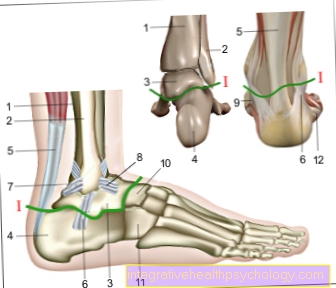
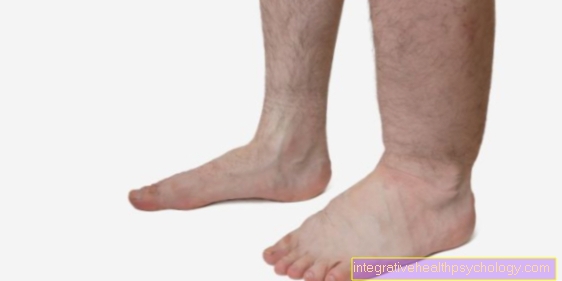
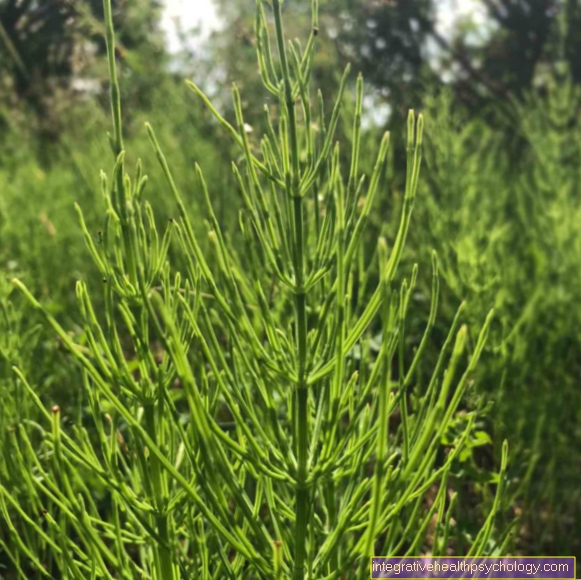





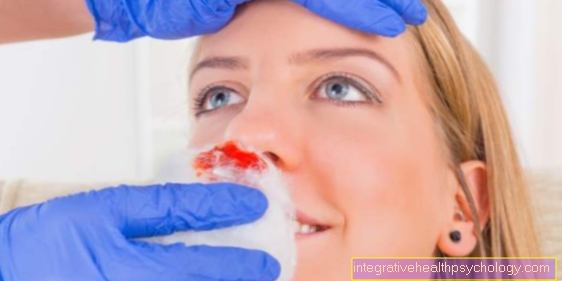
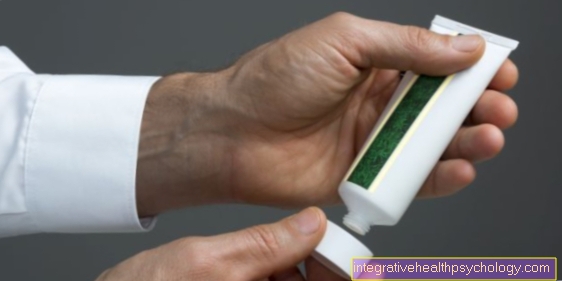



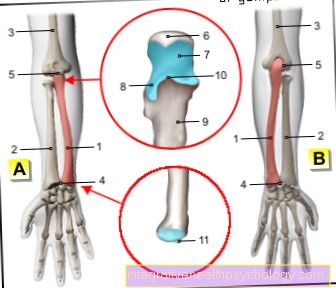
.jpg)
